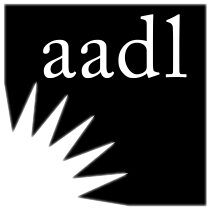It’s been a difficult year for many with Covid still looming large. Covid has been particularly hard on renters and homeowners who are expected to pay their rent/mortgage despite fewer hours at work or loss of their job entirely. Today on the blog we’re going to take a look at three programs to lighten this load.
Covid Emergency Rental Assistance (CERA)
- What is it?
- Federal funds available from the Michigan State Housing Authority to help tenants facing pandemic-related hardships avoid eviction while also ensuring landlords can recoup owed rent.
- Who’s eligible?
- Households that have incomes less than 80% of Area Median Income
- Individual(s) in the household qualified for unemployment benefits or has experienced a reduction in household income, incurred significant costs, or has experienced other financial hardship due directly or indirectly to the coronavirus outbreak
- Individual(s) in the household can demonstrate a risk of experiencing homelessness or housing instability by being past due on utilities or rent.
- More information:
- How to apply:
Michigan Homeowner Assistance Fund (MHAF)
- What is it?:
- A fund created to provide financial assistance to prevent homeowner mortgage delinquencies, defaults, foreclosure, loss of utilities or home energy services and displacements of homeowners.
- Who’s eligible?:
- Homeowners experiencing financial hardship on or after January 21, 2020, or for those homeowners who experience a coronavirus pandemic financial hardship that began before January 21, 2020 but continued after that date.
- More information:
- How to apply:
- MSHDA intends to launch the MIHAF program to the public in the fourth quarter of 2021. An online and mobile application portal is currently under development.
- Homeowners can sign up for updates via the website (bottom of the page)
Ann Arbor Aging in Place Efficiently Pilot Program
What is it?:
This new program of the City of Ann Arbor focuses on making home improvements to increase home comfort and reduce utility bills, as well as making aging-in-place improvements that increase home safety.
Who’s eligible?:
Must own a single-family home in the city of Ann Arbor that is a primary residence
Must be at least 60 years old
Must have a monthly income at or below 80% of the area median income, which means up to $54,950 for a single person and up to $62,800 for a two-person household.
More information:
MLive article about the program
How to apply:
The program is currently at capacity, but those interested can complete a survey to be placed on the waitlist.
Visit the Ahead of the Curve Senior Resource Directory to find information about home services in your community.






